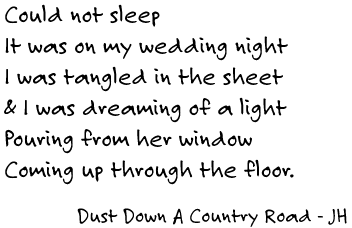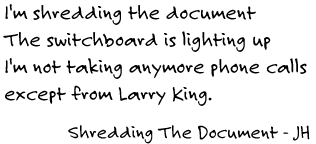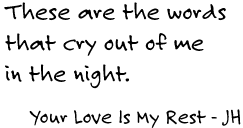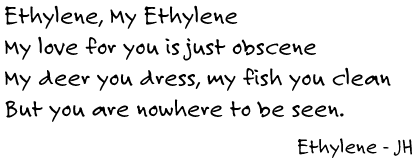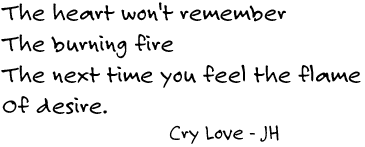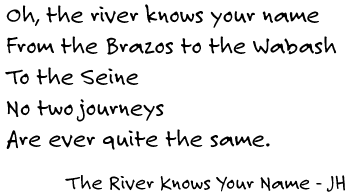|
John
Hiatt has long occupied a singular place among American
singer-songwriters. He's an artist who twists rock and soul and blues and
r&b into rhythmic shapes that echo the deep and surprising way he sees
things. "I'm a songwriter, " he says, "but I'm also a guy who has to
perform his own material. I write my own stuff, but it's ultimately all
about music, melody, my technique. I'm always interested in sound. You've
got to inhabit the right sonic space for the song to resonate with any
meaning."
Motion, Hiatt says, gives him a lot of ideas. On Walk On, his outstanding
debut for Capitol Records, Hiatt barrels through a tune about leaving,
about heading on out even when it's not your fondest wish. Highlighted by
The Jayhawks' background vocals, "You Must Go" is a deliberate rocker
enervated by stinging mandolins and soothed by harmonica. It describes
rambling, wandering, wondering through briars and brambles, wittily
concluding that "Even when you're six feed under/There's a place/That you
must go." It's a song that anchors Hiatt's new collection for a reason.
"This record has a different story from my others," he explains. By those
"others" Hiatt refers to a series of albums that go from idiosyncratic
'70s explorations like Overcoats and Slug Line to more rip-roaring mid-'80s
excursions like Riding with the King and Warming up to the Ice Age, to the
subsequent Hiatt music that refound and refreshed itself beginning with
1987's watershed Bring the Family, which sparked a trilogy of albums about
masculine eccentricity and domestic responsibility... Hiatt lives on a
farm in Franklin, Tennessee where he raises 3 kids, 9 horses, 5 cats, 3
dogs, and has lately taken to auto racing. Styles and subjects vary, but
the songs are grounded in an articulate way of seeing both comedy and
drama yoked to obsessively hummable tunes which distinguish them all. Such
compositions inspired cover versions from artists as diverse as Iggy Pop,
Bob Dylan, Bonnie Raitt, Rick Nelson, Willie Nelson, The Neville Brothers
and Rosanne Cash.
"This time," Hiatt continues, "all of the songs were written on the road.
The band and I were out for about 13 months in Europe and North America. I
always carry a guitar and a notebook with me (the tools of the trade are
always close by) and I was bored on the road, so I started pulling them
out. I rarely write on the road, but for some reason I did this time. Next
thing I knew, I had this little subplot going, this drama of writing all
these songs at all these tour dates. I was a wandering folk singer in my
room by day, a band front guy at night."
On Walk On, a swamp groove like "Write It Down and Burned It" leads with
dark, dry lines like "There's a dead girl's body/By the railroad track/she's
waiting for a train," and strands a Camaro in the rain. A manic rocker
like "Shredding the Document" rails against talk-show culture, refusing to
take calls except "maybe from Larry King." More often, however, a kind of
knotted simplicity sets the music's commanding tone. "The writing here is
probably less storytelling than before," Hiatt says. "The songs are kind
of folk-tellings, folk-groovers, where the language works almost as a
groove in itself. They're conversational: I'm talking either to myself, to
a woman, or to another guy. Much of the subject matter concerns
transitions: coming to or going from somewhere, trying to get someplace,
some trust being broken, some spirit you're trying to find."
The results are strong positions on emotional situations only John Hiatt
can take and envision. "I Can't Wait," a vocal collaboration with Bonnie
Raitt, shakes out as a soul confession where the two singers' voices give
up extraordinary amounts of sensuous detail and finesse. The first single
"Cry Love" unwinds and unwinds, taking concise flight over an
unforgettable bed of repeating mandolin figures. "Mile High," a pretty
pledge for a decidedly unpretty world, works like grunge Johnny Mercer.
Produced by the veteran rock producer Don Smith, (Keith Richards, Cracker,
The Tragically Hip, Dramarama) the new album's rootsy swirl and
expansiveness was originally meant to be the logical extension of Hiatt's
well-rehearsed touring band. But in the end, they went into the studio
with veterans Davey Faragher (bass & background vocals) and Michael Urbano
(drums), and a new guitar player, "this character David Immergluck who
sort of shaped the sound of the record. The wacky mandolin? It's not as
though I sat down and said, 'You know what? I want to have a bunch of
mandolin on this record.' It just happened that he played mandolin quite
well. And then he played this wacked-out pedal steel on an early song we
cut. It was unlike anything I'd ever heard anybody get from anything with
strings on it."
"I've spent about 20 years developing this funny little career that kind
of works," Hiatt says. "I've always moved forward, albeit slowly. But with
this period in my life, I've come to a point where I really believe in
what I do. I just feel like I'm so close now to more people coming to the
party. I find that the older I get the more passionate I become about a
lot of things. I'm getting into things I've never done before, like
driving race cars for fun, you know, crazy stuff." Hiatt smiles. "I'm in a
very outward time here." |
|
allmusic.com
Walk On
is a classic "road" album in the sense that its songs largely seem written
to or about people who are not present, either because the singer is away
from them, he is singing about the past, or they are dead. John Hiatt
exploits the resulting feelings of longing, anger, and mourning inherent
in that premise, sometimes, as in "I Can't Wait," singing about wanting to
be back home, sometimes, as in the odd love song "Ethylene," wishing for a
departed lover, sometimes, as in "Dust Down A Country Road," reflecting as
in a dream on the past. He employs rustic nature imagery, but frequently
for ominous effects rather than gentle ones, and he is supported by spare,
guitar-dominated backup that is alternately soothing and disturbing.
Hiatt's label debut for Capitol (though they didn't do much to promote it),
Walk On is not among Hiatt's more consistent or more accessible works, but
he remains a highly imaginative and craftsmanlike writer who can startle
you. The raucous "Shredding The Document" is among the half dozen best
songs of the year, if not the decade. |



